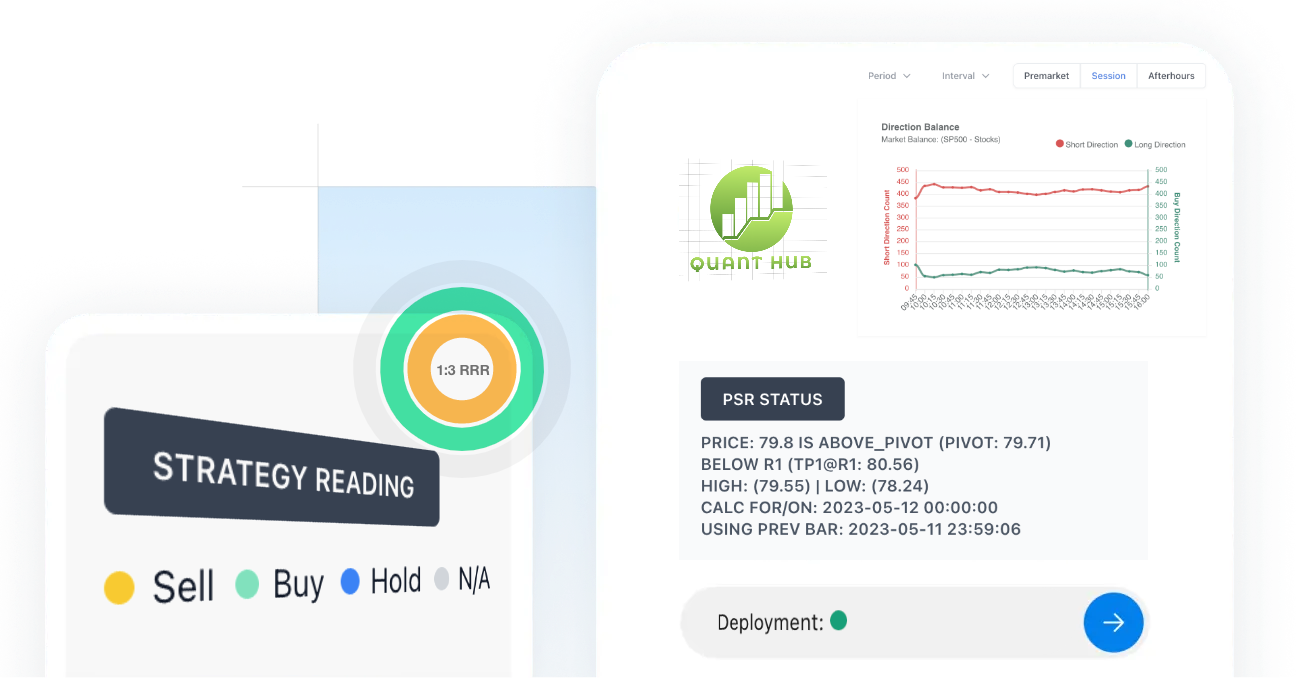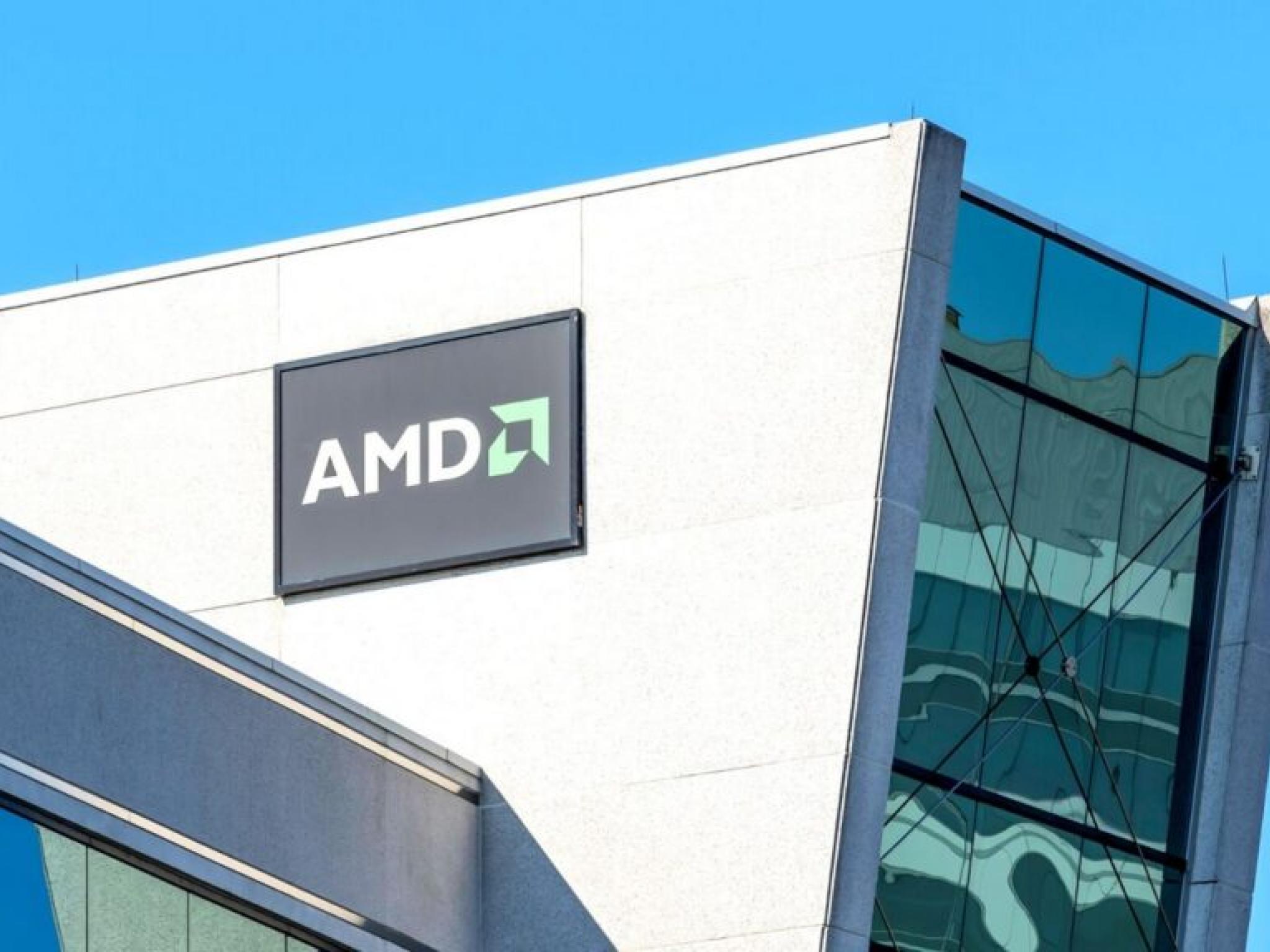Asset Summary
Daily Performance Report for AMD ETF: Nov 21, 2024
Summary: The day started with AMD ETF opening at $137.77 and closing at $136.52. The ETF showed weakness throughout the day, with the highest price observed at $137.89 and the lowest at $136.23. The underlying asset had a trading range of $1.66 Overall, it was a negative trading day for AMD ETF, reflecting investor pessimism and market activity.
Change in Closing Price: There was a net decrease of $-1.25 or -0.91% in the closing price from the opening to the closing price over the day.
Volume Analysis: Trading volume for AMD ETF was 120,036 units during Nov 21, 2024, indicating active market participation and investor interest.
Opening Price: The day started at $137.77.
Highest Price: The highest price observed during the day was $137.89.
Lowest Price: The lowest price observed during the day was $136.23.
Closing Price: The day ended at $136.52.
Asset Performance Metrics and Risk Characteristics:
Understanding asset performance is crucial for evaluating investment quality and making informed decisions. Metrics like trailing return and drawdown provide insights into how an asset has performed over time, its volatility, and the efficiency of its returns relative to risk. Performance indicators help assess the stability, risk, and reward of an investment, allowing investors and portfolio managers to make comparisons and strategize accordingly.
1 Month Trailing Return
-12.86%
Represents the percentage change in asset value over the past month.
3 Month Trailing Return
-12.81%
Indicates the percentage change in asset value over the last three months.
Period Max Drawdown
39.13%
The highest percentage drop from the peak value to the lowest point during the observed period.
Standard Deviation
48.67%
Shows how much the asset’s daily returns deviate from the average, annualized for the entire period.
Sharpe Ratio
0.23
Measures the average return earned in excess of the risk-free rate per unit of volatility, annualized.
Calmar Ratio
0.28
The ratio of the annualized return to the maximum drawdown, reflecting the return per unit of risk.
Asset Technical Analysis
Technical analysis involves evaluating an asset's price and volume data to forecast future movements and make informed trading decisions. By using various technical indicators and chart patterns, investors can gain insights into market trends, price momentum, and potential turning points. This section delves into essential technical metrics, including moving averages, pivot points, and other indicators that provide a snapshot of an asset's current technical stance. Analyzing these indicators helps investors identify entry and exit points, assess market sentiment, and refine their trading strategies. Explore the following technical analysis data to understand the asset's performance dynamics and make better-informed decisions.
Moving Averages
Moving Averages are commonly used to smooth out price data and identify trends over a specific period. Here’s a summary of the latest moving averages for various periods:
| Type/Period | |
|---|---|
| SMA | |
| EMA | |
| WMA | |
| WEMA |
- SMA (Simple Moving Average): Reflects the average price over a specific number of periods.
- EMA (Exponential Moving Average): Gives more weight to recent prices, making it more responsive to new information.
- WMA (Weighted Moving Average): Assigns a weight to each price, emphasizing more recent prices.
- WEMA (Weighted Exponential Moving Average): Combines elements of both WMA and EMA for a more responsive moving average.
Pivot Support and Resistance Levels
Pivot Points are used to determine potential support and resistance levels. Here’s a breakdown of the latest Pivot Points for various methods:
| Type | S3 | S2 | S1 | PIVOT | R1 | R2 | R3 |
|---|---|---|---|---|---|---|---|
- Classic Pivot Points: Derived from the high, low, and close of the previous period to predict support and resistance.
- Fibonacci Pivot Points: Uses Fibonacci levels to calculate support and resistance.
- Camarilla Pivot Points: Uses a different formula to calculate levels based on the previous period’s high, low, and close.
- Floor Pivot Points: Based on the floor theory, with adjustments for support and resistance levels.
- Woodies Pivot Points: Uses a formula incorporating the previous period's open price.
- DeMark Pivot Points: Employs DeMark's method which varies depending on the closing price relative to the opening price.
Technical Indicators
Technical Indicators are tools used to analyze market trends and make predictions. Here’s a summary of some key indicators:
| Indicator | Value | Details |
|---|---|---|
|
|
|
- ADL (Accumulation/Distribution Line): Measures the cumulative flow of money into and out of a security.
- ForceIndex: Combines price and volume to gauge the power of price movements.
- MFI (Money Flow Index): Indicates the direction of money flow into and out of a security.
- OBV (On-Balance Volume): Uses volume flow to predict changes in stock price.
- VWAP (Volume Weighted Average Price): Shows the average price a security has traded at throughout the day, based on volume and price.
- VolumeProfile: Analyzes trading volume at different price levels over a specific period.
- ADX (Average Directional Index): Measures the strength of a trend.
- ATR (Average True Range): Reflects market volatility by measuring the average range of price movement.
- Ichimoku Cloud: Provides information about support and resistance levels, trend direction, and momentum.
- KST (Know Sure Thing): A momentum indicator that combines four different momentum measurements.
- PSAR (Parabolic SAR): Indicates potential reversals in the market.
- ROC (Rate of Change): Measures the percentage change in price over a specific period.
- Stochastic: Measures the level of the closing price relative to the high-low range over a period.
- StochasticRSI: Combines RSI with Stochastic Oscillator to gauge the RSI level’s relative position.
- TRIX: Shows the percentage change in a triple-smoothed moving average.
- WilliamR: Indicates overbought and oversold conditions.
- MACD (Moving Average Convergence Divergence): Shows the relationship between two moving averages of a security's price.
- AO (Awesome Oscillator): Measures market momentum by comparing a 34-period and a 5-period simple moving average.
- CCI (Commodity Channel Index): Measures the deviation of the price from its average over a period.
- RSI (Relative Strength Index): Indicates overbought or oversold conditions by comparing recent gains and losses.
- BB (Bollinger Bands): Indicates volatility and potential overbought or oversold conditions based on price bands.
- Keltner Channels: Similar to Bollinger Bands but uses average true range for bands.
Candlestick Patterns Analysis
Candlestick patterns are crucial in technical analysis, providing visual insights into market sentiment and potential price movements. This section analyzes various candlestick patterns over a specified range of recent candles to identify any significant formations that might indicate future market trends. Each pattern is evaluated based on the latest candle data to determine if it matches known patterns of bullish or bearish signals.
Scanned Candlestick Patterns
The tool utilizes real-time price data to scan for these patterns, displaying results with timestamps to help understand the context of each detected pattern.
Patterns Detected
| Timestamp | Pattern | Found |
|---|---|---|
Detectable Candlestick Patterns
| Pattern | Support |
|---|---|
Historical Prices
This section provides a detailed overview of historical price data for the selected asset. The table below captures key metrics such as open, high, low, and close prices as well as volume and vwap for each trading period. Analyzing historical prices helps in understanding past market trends and volatility, enabling better-informed decisions for future trading strategies.
| Timestamp | Open | High | Low | Close | Volume | VWAP | Change |
|---|---|---|---|---|---|---|---|
| 11/20/2024 08:00 PM | 135.84 | 137.72 | 135.68 | 137.59 | 4,711,678 | 136.87 | +1.75 +1.29% |
| 11/20/2024 07:00 PM | 135.88 | 136.48 | 135.48 | 135.85 | 2,727,294 | 135.89 | -0.03 -0.02% |
| 11/20/2024 06:00 PM | 136.67 | 136.80 | 135.58 | 135.86 | 4,056,538 | 136.07 | -0.81 -0.59% |
| 11/20/2024 05:00 PM | 137.85 | 137.99 | 136.57 | 136.63 | 2,016,442 | 137.05 | -1.22 -0.89% |
| 11/20/2024 04:00 PM | 138.00 | 138.28 | 136.35 | 137.85 | 3,203,128 | 137.26 | -0.15 -0.11% |
| 11/20/2024 03:00 PM | 138.02 | 138.56 | 137.28 | 138.01 | 3,246,707 | 137.88 | -0.01 -0.01% |
| 11/19/2024 08:00 PM | 138.93 | 139.47 | 138.81 | 139.40 | 3,054,995 | 139.17 | +0.47 +0.34% |
| 11/19/2024 07:00 PM | 139.64 | 139.72 | 138.71 | 138.92 | 2,069,794 | 139.14 | -0.72 -0.52% |
| 11/19/2024 06:00 PM | 138.39 | 139.75 | 138.25 | 139.66 | 2,399,144 | 139.04 | +1.27 +0.92% |
| 11/19/2024 05:00 PM | 138.28 | 138.57 | 138.04 | 138.38 | 2,461,905 | 138.30 | +0.10 +0.07% |
| 11/19/2024 04:00 PM | 138.27 | 138.57 | 137.85 | 138.28 | 3,020,083 | 138.24 | +0.01 +0.01% |
| 11/19/2024 03:00 PM | 138.38 | 138.80 | 137.81 | 138.29 | 3,782,252 | 138.33 | -0.09 -0.07% |
| 11/18/2024 08:00 PM | 139.90 | 139.96 | 138.63 | 138.96 | 4,772,115 | 139.28 | -0.94 -0.67% |
| 11/18/2024 07:00 PM | 140.51 | 140.53 | 139.45 | 139.91 | 1,975,667 | 139.86 | -0.60 -0.43% |
| 11/18/2024 06:00 PM | 140.09 | 140.90 | 139.94 | 140.50 | 2,936,481 | 140.39 | +0.41 +0.29% |
| 11/18/2024 05:00 PM | 139.32 | 140.10 | 138.99 | 140.10 | 3,628,677 | 139.56 | +0.78 +0.56% |
| 11/18/2024 04:00 PM | 139.96 | 140.40 | 139.13 | 139.31 | 3,496,389 | 139.95 | -0.65 -0.46% |
| 11/18/2024 03:00 PM | 139.05 | 140.36 | 138.85 | 139.95 | 6,218,307 | 139.71 | +0.90 +0.65% |
| 11/15/2024 08:00 PM | 134.19 | 135.04 | 133.98 | 134.96 | 6,222,348 | 134.50 | +0.77 +0.57% |
| 11/15/2024 07:00 PM | 134.75 | 135.00 | 133.65 | 134.17 | 6,298,143 | 134.14 | -0.58 -0.43% |
| 11/15/2024 06:00 PM | 135.55 | 135.67 | 134.70 | 134.75 | 3,591,972 | 135.19 | -0.80 -0.59% |
| 11/15/2024 05:00 PM | 134.93 | 136.13 | 134.68 | 135.58 | 3,480,522 | 135.47 | +0.65 +0.48% |
| 11/15/2024 04:00 PM | 135.86 | 135.96 | 134.82 | 134.94 | 6,781,301 | 135.37 | -0.92 -0.68% |
| 11/15/2024 03:00 PM | 136.32 | 137.07 | 135.49 | 135.86 | 6,990,374 | 136.07 | -0.46 -0.34% |
| 11/14/2024 08:00 PM | 139.75 | 139.75 | 138.65 | 138.87 | 7,715,296 | 139.03 | -0.88 -0.63% |
| 11/14/2024 07:00 PM | 139.11 | 140.07 | 139.11 | 139.73 | 2,446,830 | 139.73 | +0.62 +0.45% |
| 11/14/2024 06:00 PM | 139.66 | 140.40 | 139.10 | 139.12 | 2,632,329 | 139.88 | -0.54 -0.39% |
| 11/14/2024 05:00 PM | 139.40 | 139.85 | 138.56 | 139.66 | 3,315,257 | 139.17 | +0.26 +0.19% |
| 11/14/2024 04:00 PM | 139.46 | 139.88 | 139.20 | 139.41 | 2,860,441 | 139.52 | -0.05 -0.04% |
| 11/14/2024 03:00 PM | 140.43 | 141.15 | 139.33 | 139.46 | 4,810,255 | 140.10 | -0.97 -0.69% |
| 11/13/2024 08:00 PM | 140.31 | 140.66 | 139.07 | 139.31 | 6,400,356 | 139.86 | -1.00 -0.71% |
| 11/13/2024 07:00 PM | 140.85 | 140.85 | 140.11 | 140.32 | 2,576,920 | 140.49 | -0.53 -0.38% |
| 11/13/2024 06:00 PM | 140.76 | 141.21 | 140.50 | 140.84 | 3,006,475 | 140.79 | +0.08 +0.06% |
| 11/13/2024 05:00 PM | 140.57 | 140.75 | 139.93 | 140.75 | 4,414,424 | 140.24 | +0.18 +0.13% |
| 11/13/2024 04:00 PM | 142.16 | 142.24 | 140.40 | 140.57 | 4,733,134 | 141.30 | -1.59 -1.12% |

Empower Your AMD Trading Now
Experience the future of trading with Rank My Trade Online. Our advanced system delivers in-depth analysis and insights for AMD, utilizing state-of-the-art technical tools and strategies. Transform your trading strategy now and see how we can elevate your trading results!
Explore Insights NowFrequently Asked Questions
-
As of now, AMD does not pay dividends. Instead, the company reinvests its profits into research and development to drive growth and innovation.
-
AMD invests heavily in research and development to innovate and improve its semiconductor technologies, focusing on next-generation computing solutions.
-
AMD competes by focusing on high-performance computing solutions, innovative architectures, and aggressive pricing strategies, particularly against competitors like Intel and NVIDIA.
-
Investors can buy shares of AMD through a brokerage account, as it is publicly traded on the Nasdaq under the ticker symbol "AMD."
-
AMD has been increasing its market share in the CPU and GPU markets, particularly in the gaming and data center segments, through its innovative product offerings.
-
Major products from AMD include the Ryzen series of CPUs for desktops and laptops, the EPYC series for servers, and the Radeon series of graphics cards.
-
Investing in AMD carries risks such as market volatility, competition from other semiconductor companies, and potential supply chain disruptions.
-
AMD has formed partnerships with various companies, including major PC manufacturers and gaming console makers, to integrate its technology into their products.
-
AMD typically reports its earnings on a quarterly basis, providing insights into its financial performance, market strategy, and product development.
-
AMD is committed to sustainability by aiming to reduce energy consumption in its products and operations, and by engaging in responsible manufacturing practices.
Top Market Assets
Discover our curated selection of top-performing exchange-traded funds (ETFs) that represent a diverse range of investment opportunities.

SPY
SPY is an exchange-traded fund (ETF) that aims to replicate the performance of the S&P 500 Index. The S&P 500 Index includes 500 of the largest publicly traded companies in the United States, representing a broad cross-section of the U.S. economy.

QQQ
QQQ is an exchange-traded fund (ETF) that tracks the performance of the Nasdaq-100 Index. This index includes 100 of the largest non-financial companies listed on the Nasdaq Stock Market, primarily focusing on technology and innovation sectors.

DIA
DIA is an exchange-traded fund (ETF) that aims to track the performance of the Dow Jones Industrial Average (DJIA). The DJIA is a stock market index consisting of 30 large, publicly traded companies in the United States, representing a broad range of industries.

IWM
IWM is an exchange-traded fund (ETF) that seeks to track the performance of the Russell 2000 Index. The Russell 2000 Index measures the performance of the 2,000 smallest stocks in the Russell 3000 Index, representing a broad segment of small-cap U.S. companies.
Unleash Your AMD Trading Now
Empower your trading with Rank My Trade Platform. Our comprehensive platform delivers precise analysis and strategic insights for AMD, designed to improve your trading outcomes. Elevate your trading approach instantly and unlock new opportunities with our advanced system!

Disclaimers
The information displayed on this site is sourced from third-party providers and is believed to be reliable. RankMyTrade (RMT) has not independently verified this data and does not guarantee its accuracy. The information and calculations provided by RankMyTrade are for educational and informational purposes only and should not be construed as financial or investment advice.
With any investment, your capital is at risk. The value of your portfolio go down as well as up. Past performance is no guarantee of future results. By using this website, you accept our Terms of Service, Privacy Policy, and Payment Agreement.
Market data is provided in near real-time when available, but we do not guarantee its accuracy or timeliness.
Securities products are: Not FDIC insured · Not bank guaranteed · May lose value
Trademarks and logos are the property of their respective owners and do not represent endorsements of any kind. Unless otherwise noted, RankMyTrade and its affiliates are not partners, affiliates, or licensees of these companies.


